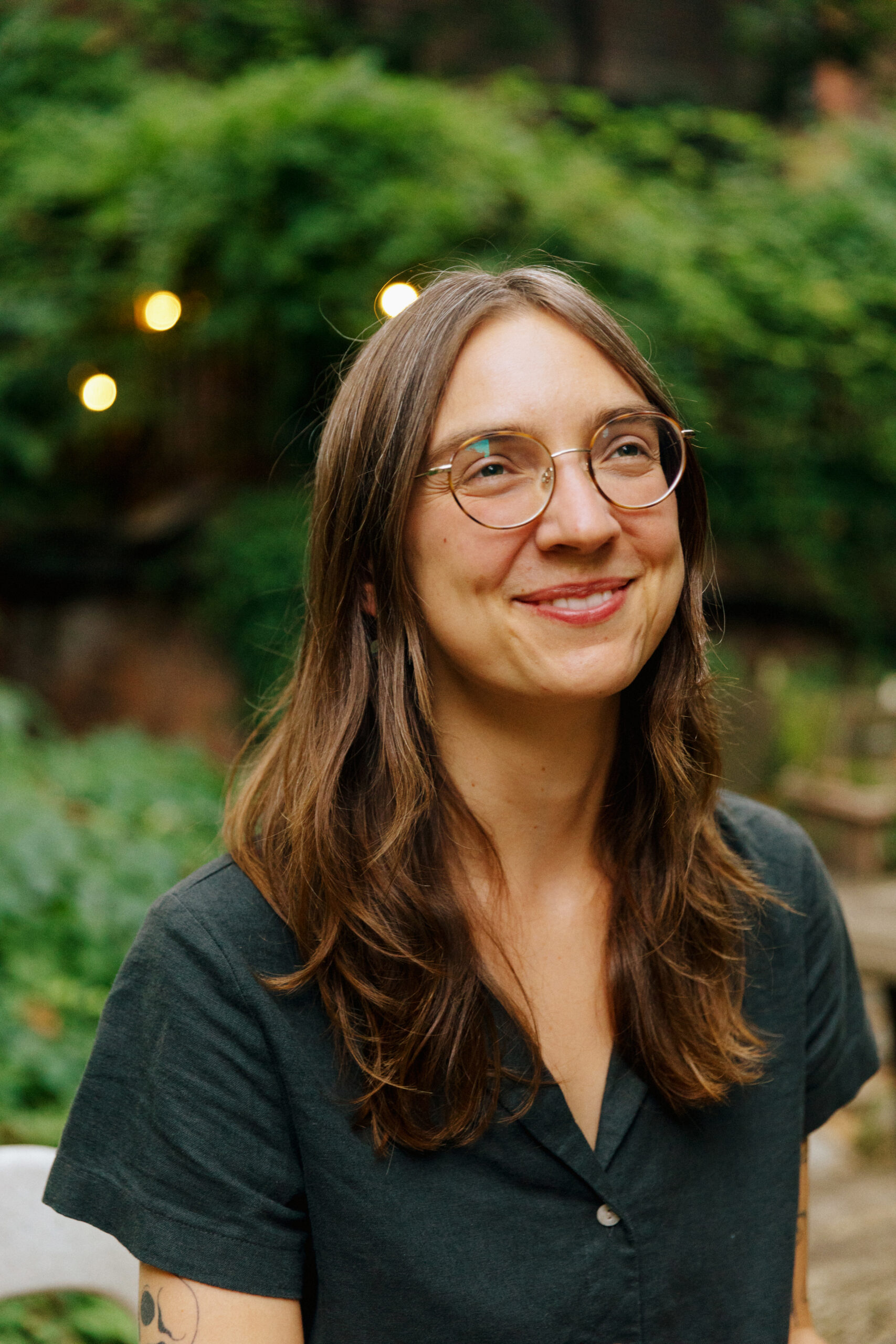Laura Henriksen has a multifaceted career as a poet, arts administrator, and educator, wherein every job she does informs the others. After graduating from Pratt in 2012 with a BFA in writing, she began working for The Poetry Project, a nonprofit run from St. Mark’s Church in-the-Bowery since 1966. She soon became its program director and began curating readings featuring writers whose oeuvres span global literary traditions. This spring, Nightboat Books published her first full-length book, Laura’s Desires. Henriksen returned to Pratt as a professor in 2019, and the writing teacher who helped her break out of her shell and embrace poetry readings, Anselm Berrigan, has transformed from her mentor into her colleague.
You’ve shared that Anselm Berrigan, adjunct assistant professor of writing, is among your Pratt mentors. What was the most influential lesson or wisdom he imparted? How does he continue to inspire you?
Anselm helped me in so many ways, it’s hard for me to know where to begin. Absolutely he introduced me to histories of experimental writing that opened up for me whole other possible futures. But maybe to answer this question, I’ll offer something that may seem small, but absolutely changed the course of my life.
When I was his student, I was really horrified at the idea of having to give public readings. There were a million reasons why I found that to be an intolerable concept, to the point that I would have preferred to give up the whole thing entirely and stop writing rather than read my work in front of people. And Anselm was so patient with me, and took my fears so seriously—he would read my writing for me in class when I didn’t feel up to reading, which meant the world to me. It was unforgettable.
At the same time, he would have us listen to archival recordings of poets reading their work, and so I started to get a sense of how much hearing someone’s voice presenting their words transformed the experience of the text—which is not to say that it was better than it was on the page, just a different experience, more embodied and personal, perhaps.
“This lesson expanded far beyond reading my own work—it taught me how absolutely necessary poetry readings are.”
Laura Henriksen, BFA Writing ’12
Gradually, with his guidance, I started to understand that there was no right or wrong way to read your work to people, you just do it your way, in a way that feels specific and authentic to the poem, and that really began to alleviate my fears about performance and made me feel more empowered about reading. It still took me many years to not be a total nervous disaster before a reading, but it was at that time that considering the possibility that maybe I could read became available to me at all.
And this lesson expanded far beyond reading my own work—it taught me how absolutely necessary poetry readings are, both as a catalyzing force to maintain a vibrant and growing community of writers, and also as a medium for the poems themselves, a centrally important part of how poems exist in the world. I can’t overstate the significance of this, because now my life is basically organized around poetry readings—giving them, organizing them, hosting them, attending them. And without Anselm’s help at that particularly vulnerable time, none of that would have been possible for me.
That’s just one concrete thing, but it extends far beyond that as well—Anselm’s kindness and generosity as a teacher, his brilliance and music as a poet, these things are close to my heart always, and inspire me daily.
